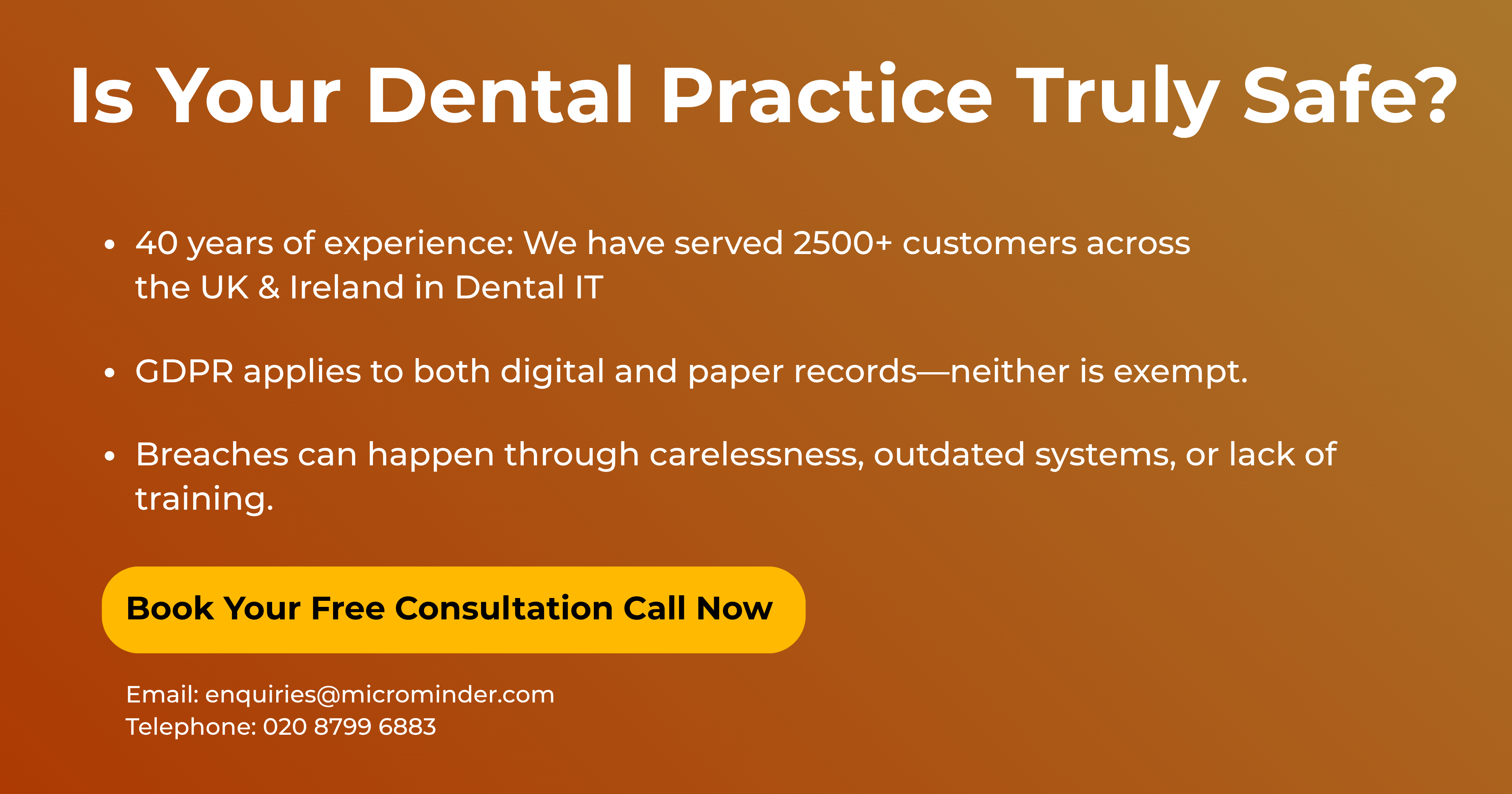In an age where digital systems dominate and data breaches make headlines; dental practices must take data protection seriously. GDPR isn’t just a compliance it’s a vital framework for safeguarding patient trust, team wellbeing, and your professional reputation. From cyber threats to mismanaged paper records, safeguarding patient and team member information is no longer optional, it’s essential.
While digital tools offer efficiency and convenience, they also introduce significant vulnerabilities. Recent high-profile cyberattacks on UK giants like M&S, Harrods, and the Co-op have exposed the personal data of thousands, causing widespread disruption and concern. Dental practices aren’t immune.
Paper-based systems carry their own risks:
Whether digital or paper, the responsibility to protect personal data is the same.
Under GDPR, personal data refers to any information that can identify an individual. This includes:
If someone accesses this information without permission, it’s considered a breach—even if it’s accidental.
In GDPR terms, “processing” includes every interaction with personal data:
Every step must be justified, documented, and protected.
To remain compliant, practices should:
Bottom line: GDPR isn’t just a regulation—it’s a framework for trust. Protecting personal data means protecting your practice’s reputation.
Compliance isn’t a one-off task—it’s an ongoing commitment. Practices should:
Email is inherently insecure. To minimise risk:
Patients have the right to access all personal data you hold—including clinical notes, emails, texts, and call recordings. Ensure all communications are professional and securely stored.
GDPR compliance isn’t just about policies and paperwork, it’s about having the right infrastructure in place. A trusted IT provider such as Microminder can help ensure your systems are secure, your data is backed up, and your communications are encrypted. We offer peace of mind with tools to help you stay compliant and offer managed IT support. Investing in expert IT services means you’re not just meeting legal requirements; you’re building a resilient and patient-centred practice.

All personal and health information, like medical records and contact details, must be kept secure and private.
Not always. Larger practices usually need one, but smaller ones must still have someone responsible for data protection
They can face large fines and lose patient trust, so it’s vital to keep data safe and comply fully.